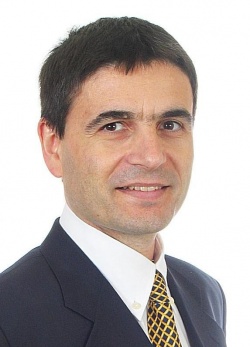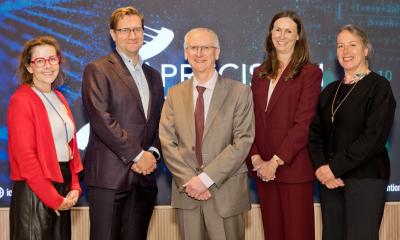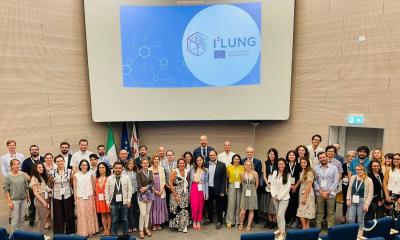New cooperation in research on ovarian cancer
Preclinical program of translational research tasked with identifying new target proteins
Sanofi and the Curie Institute, through its Curie-Cancer partnership under the Institut Carnot label, today announce the establishment of a three-year research collaboration to identify new therapeutic targets for the development of treatments for ovarian cancer.

The aim of the collaboration between Sanofi and Curie-Cancer is to revisit the basic biology of this type of cancer through a translational research approach. The Institut Curie has a large collection of cryopreserved tumor samples that are well characterized clinically, histologically and biologically. These can be analyzed to identify biological targets relevant to the effective treatment of certain types of cancer. Through this collaboration, Sanofi and Curie-Cancer expect to gain a better understanding of the molecular alterations that characterize many types of ovarian cancer, thereby enabling effective new drugs to be designed.
"We hope this type of long-term collaboration will ultimately open up perspectives for new therapeutic options for women with this disease. It will combine the accumulated knowledge on ovarian cancer gathered over many years by oncologists and biologists at the Institut Curie with the expertise of researchers from Sanofi's research and product development teams," said Dr. Debasish Roychowdhury, senior vice president and head of Sanofi Oncology. "Established under the Aviesan[1] partnership, this research agreement is a good example of translational research involving French scientific excellence."
"It is currently hard to tackle ovarian cancer. There are very few drugs available. We are very happy to collaborate with Sanofi to potentially provide our patients with additional therapeutic solutions. Sanofi's expertise in the selection of therapeutic targets is complementary to the know-how and technology platforms developed at the Institut Curie," said Damien Salauze, director of Curie-Cancer.
Using technology platforms developed at the Institut Curie by scientific teams led by Dr. Xavier Sastre-Garau and Dr. Sergio Roman-Roman, this program will make it possible to sequence molecules expressed by the tumor genome, compare the sequences of those obtained with non-tumor tissues from the same patients and then clarify and validate the nature of the molecular alterations that are identified. Sanofi's expertise in the selection of therapeutic targets will then guide an assessment of the tumor's ability to be inhibited or stimulated by drugs.
Ovarian cancer is still difficult to treat, despite recent advances. The main risk factor is advancing age, as well as a known hereditary factor in 5-10 per cent of cases. They are most often diagnosed late. The current therapeutic strategy of combining surgery and chemotherapy is effective, but relapses are frequent and the condition gradually becomes resistant to medical treatment.
19.06.2013





